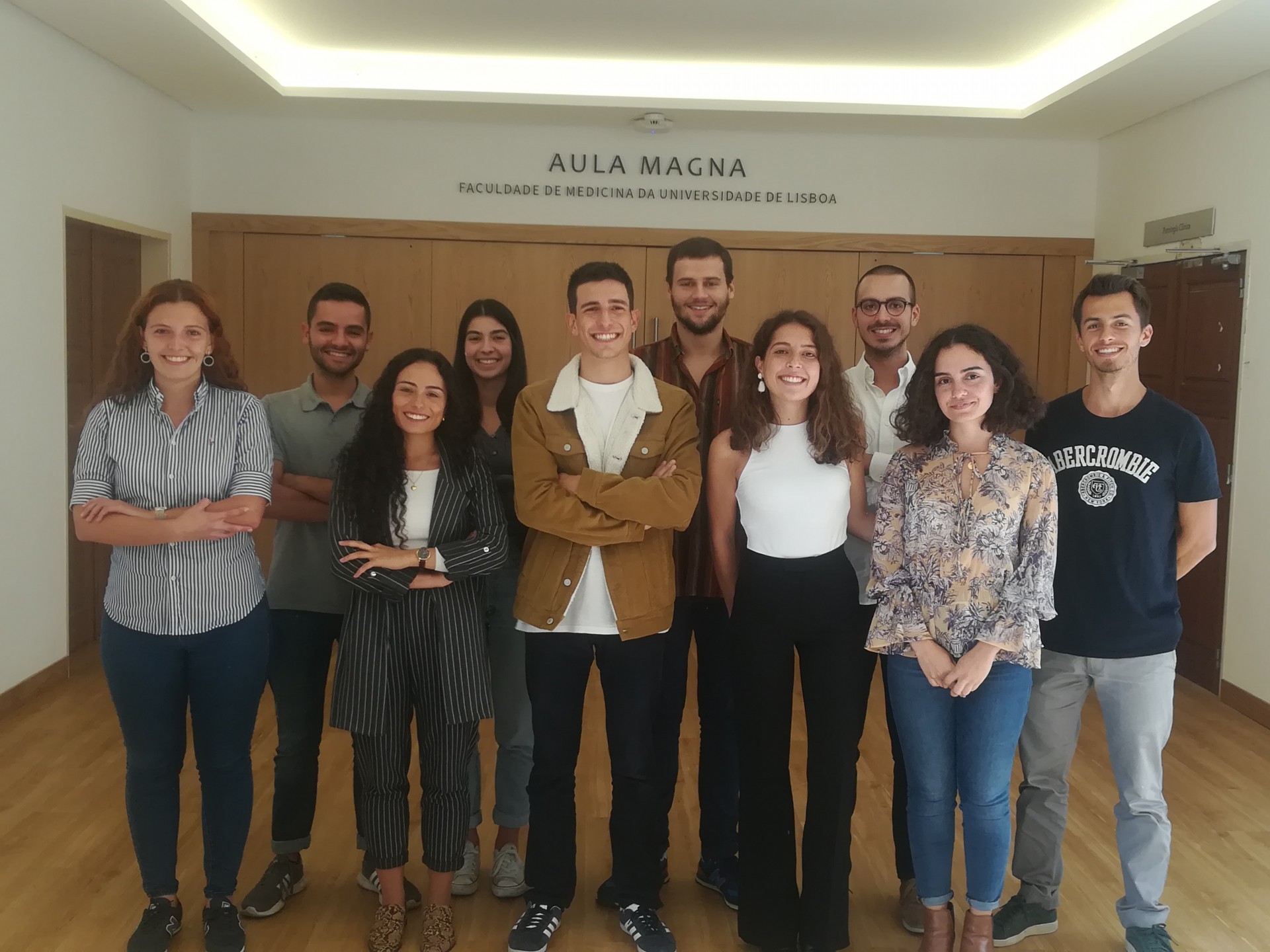
At a meeting that promised to be just a state of play between the new AIMS team (Annual International (Bio) Medical Students) and the Faculty's Communication Office, it quickly became clear that it was worth bringing all the department coordinators together and getting to know the team before agreeing on joint work. Sitting in front of the general coordinator, Guilherme Vilhais, I asked him how many coordinators he had. He answered 8. "And can we at least get some here?" He and the PR team exchanged a quick glance, Guilherme smiled, apparently relaxed with his legs crossed, and they began to text and make calls at a breakneck pace.
The idea this October was, rather than just promoting the AIMS project, to make its people and what they bring to the project known. I was sure that if half of the group came, it would be a success. I was wrong.
Almost after that Mariana came, who also started making calls.
Quiet in my chair, unsure of what I had asked them, I just kept watching them in a state of amusement and at the same time puzzled, and just listened to them. "She's in class, but she can make it here for a minute," "Don’t leave the Faculty yet, can you come over?"
In less than three minutes, a meeting room that had only 4 people was filled with students, all responsible for coordinating a specific area of AIMS.
And here they were, all ready and available for anything which none of them knew what it was. But when they were called upon, they acted immediately because, as they would later explain to me, when taking on certain duties, the level of commitment to the project is sometimes their first priority.
AIMS will soon be in its 11th edition and over the years has achieved an almost unmatched national and even international degree of success. Is this an exaggeration? No. In 2019, they had 941 participants and of these, 119 were international, coming from 35 different countries; they organized 87 workshops, with 1893 places filled; and brought together 244 health professionals to collaborate in the congress. They became so prestigious that they began bringing several Nobel Prize winners in Medicine, Chemistry, among other persons equally brilliant in their fields. By 2020 they promise to broaden the audience to 1250 participants. They also say that this is not the only change, there will be more. They will bring into the discussion greater social concern, talk about sustainability and the fight against food waste.
But what does this great organization, made up of only 24 students from the Faculty of Medicine of the University of Lisbon want? To bring together a wide range of people interested not only in medicine, but in all biomedical areas as undergraduate health students. But I would say that thought takes them even further.
Guilherme, let's start with you. You are the general coordinator, but what role is this in such a project?

Guilherme Vilhais: The general coordinator must always be aware of what is going on in all departments in order to clarify any doubts that arise. In fact, he is the element that bridges the various departments. He articulates the functions a lot, which means being on top of everything that is happening. And this goes hand in hand with knowing the modules, the speakers, the social programme, the fundraising, and the actual logistics of the congress. One always has to manage the team as a whole, listening to it and making joint decisions. When there are meetings with external entities, he is the one who represents the project and, although almost never alone, is ultimately the external representative of AIMS. Then I have tasks allocated just to me, precisely to help those who are overworked. There is still another role in parallel, which is the establishment of bridges with the Faculty of Medicine and the University of Lisbon itself. We strongly argue that we can only gain by joining efforts with the Faculty. Although the AIMS's “parent institution” is the AEFML, we believe that the work we do raises the Faculty's name and inherently ours because we are students here.
How is the overall coordination of this organization achieved?
Guilherme Vilhais: Last year I was already a member of the scientific department. In fact, there is always a continuity in AIMS. All coordinators were already involved in the project in the last edition, although only as elements of the departments. When the 10th edition of AIMS ended, we all gathered and voted on the new coordinators, and I applied. I applied because I believe it is a position that allows me to train many different skills that I already had and because I felt I had more to give to the project.
It means that all of you put your names forward for to the positions you hold, right?
All: Yes!
And who are the people who vote?
Guilherme Vilhais: There is a first meeting with the people who were part of the previous edition and who expressed their willingness to continue to be part of the project. Not all continue. The group of potential interested students is then evaluated and only those can vote. In normal situations, each one submits his/her candidacy, explains his/her arguments, exposes his/ her vision and then we vote secretly.
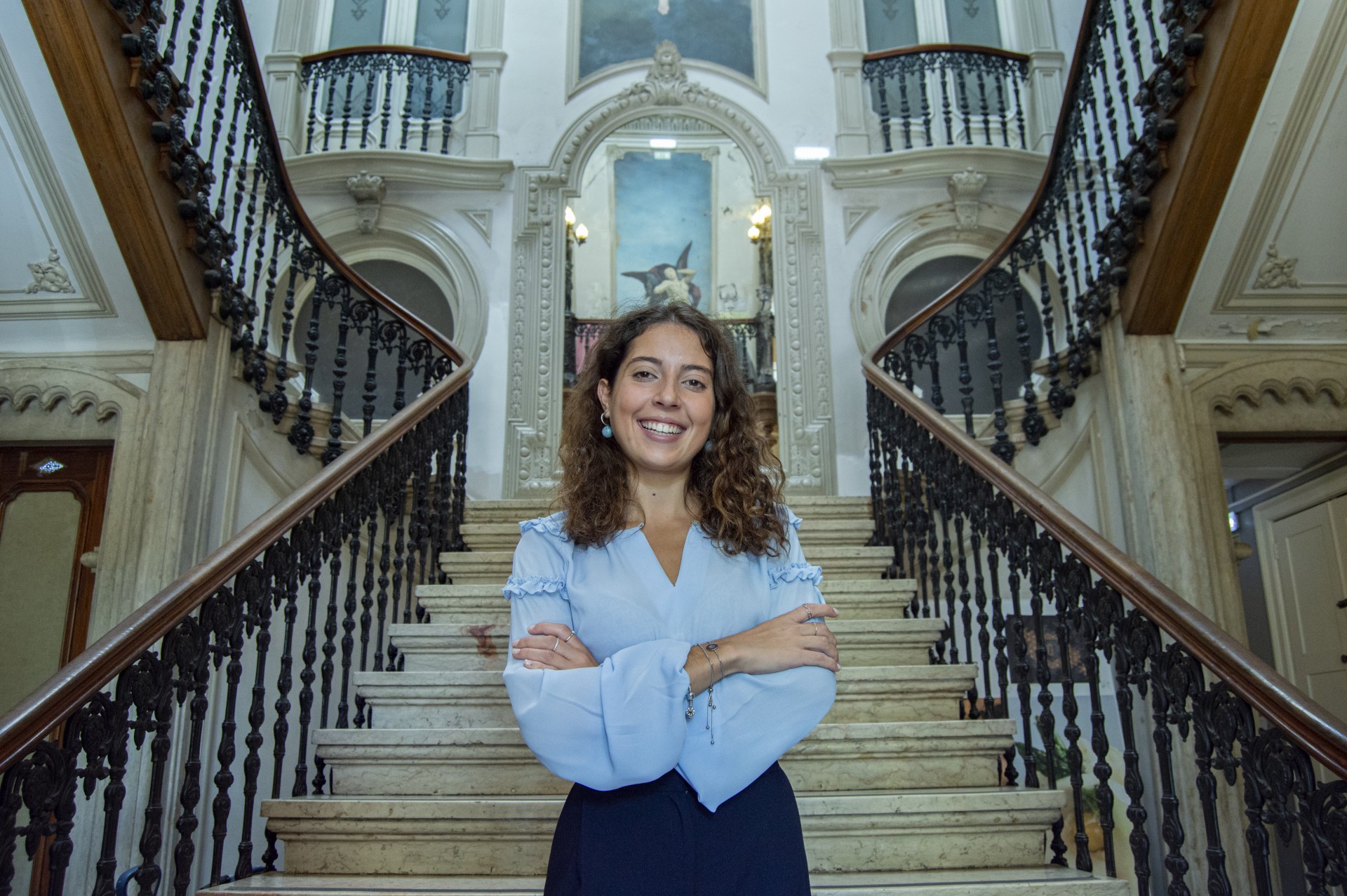 Mariana, continue with the introductions.
Mariana, continue with the introductions.
Mariana Vaz: I am the logistics coordinator together with Tomás and Maria José and we have 5 people under us. This year we had to increase the number of department coordinators because, with the increasing size of the project, we decided it was untenable to have just one person coordinating this department. Our department is the one that enables everything in the backstage to be built. The scientific department picks the speakers and then we have to find a way to bring them over. That implies the fundraising part. On the other hand, on the days of the actual congress, we deal with the logistics of the speakers' hotels, meals, coffee breaks, and social programme.
Maria José, you are also part of the logistics coordination. Is there anything you would like to highlight?
Maria José Santos: The growth of the department was not only in the number of people involved in it, but also in the objectives. One of them is to ensure that we have the necessary financial amounts to set up the congress and that amount is not small. Of course, our Student Association ensures that its support is quite stable, but even with that, we need to work it out to double it, even triple it. This is the only way to guarantee not only that we are the largest congress in Europe, but also that we are the best and the most surprising. And that is what has to be valued because it is in the detail that one can be so successful and make a difference compared to other congresses.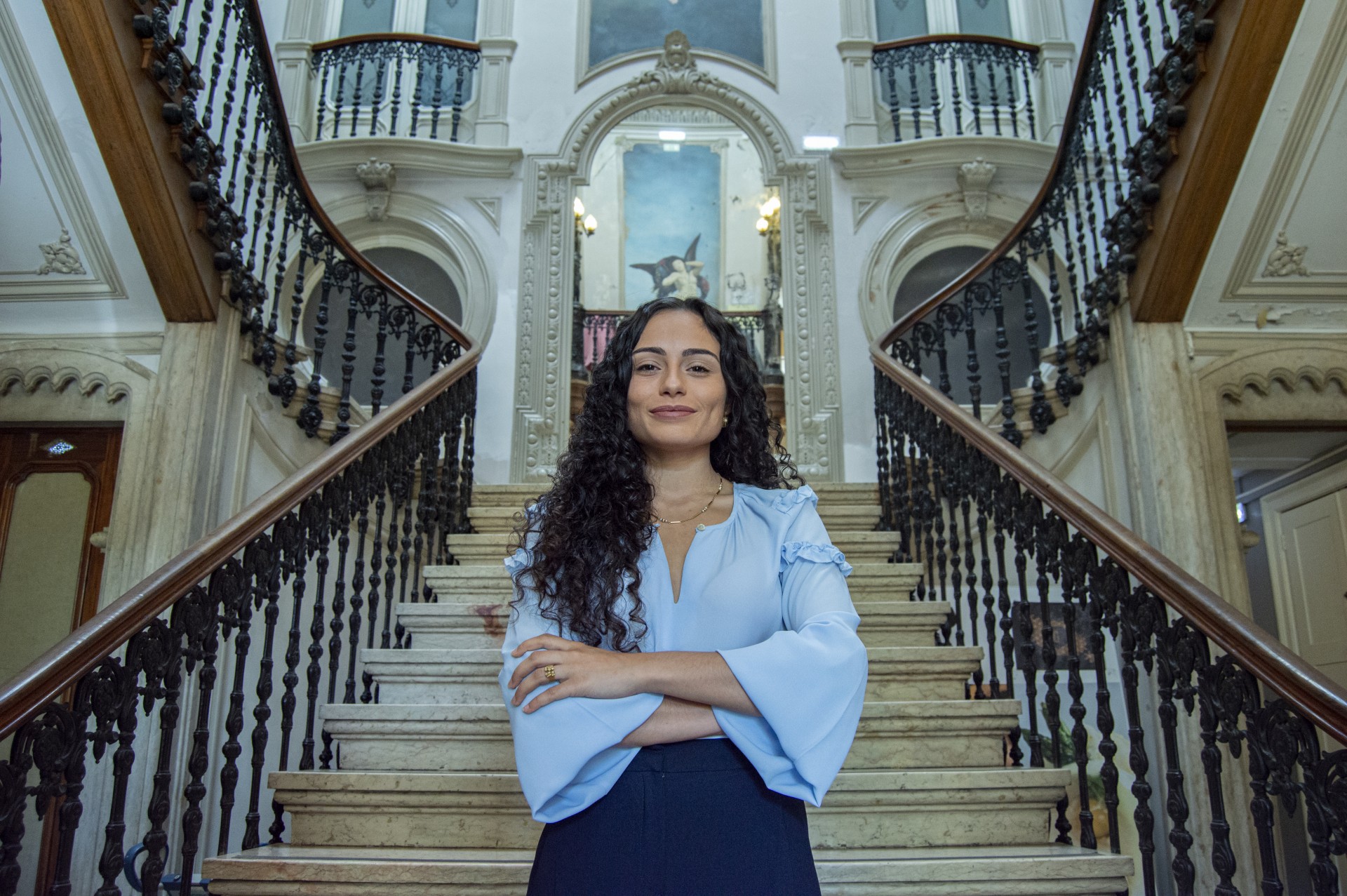
Can you give me an example of how you make a difference in relation to others?
Maria José Santos: From the feedback of the participants, I would say that it is the size and pride with which we present everything we do. Even the coffee break itself is very rich and has an excellent presentation. And this year we have a new challenge. We will go a long way to improve the sustainability of our congress. Because preparing everything for 1200 people is not easy, let alone ensuring that the materials are sustainable, and that will be one of the big, big, goals we have.
Tomás, can we talk about this new sustainability topic and why it is not so obvious when it comes to its concept?
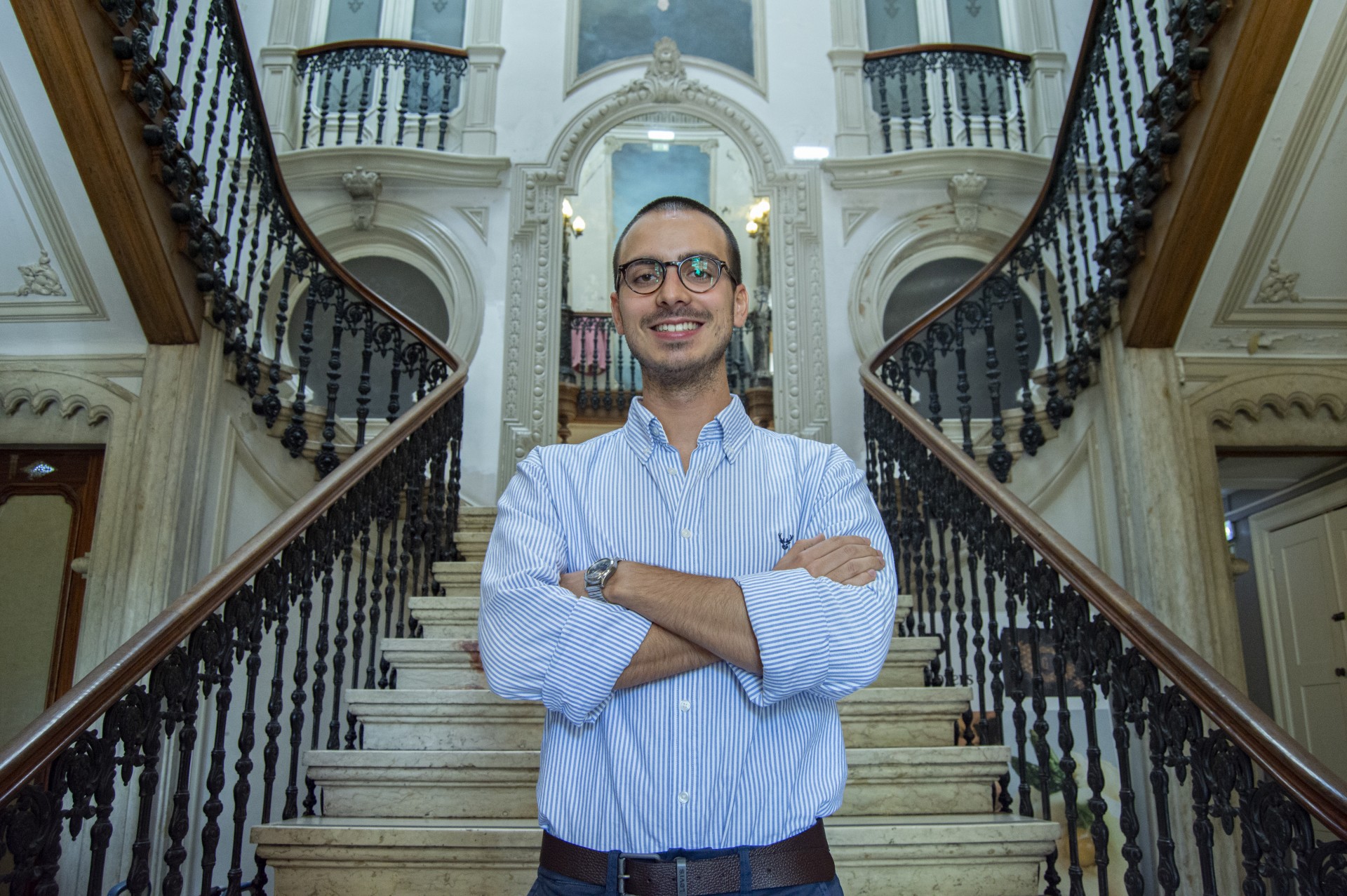 Tomás Ramalho: One of the major criticisms over the years concerns sustainability, a theme that is very current and attested by the companies' commitment to the renovation of materials. Last year, we received some criticism about this, not only in terms of quantity but also regarding the type of materials used. Imagine the waste in preparing coffee breaks and lunches for 900 people! It generates a lot of waste, not only food, but resources. This year we made the decision to change that drastically to adapt to the new paradigm and business behaviour. So we decided to make our congress more environmental friendly. In this issue, we will introduce the AIMS Green concept and have sustainable, environmentally friendly materials that will not harm the environment and will also combat food waste. These measures will be implemented at the AIMS Masterclasses on 30 October. However, it is a job that has not been easy because we are trying not to use plastic by switching to other materials, something that is not easily manageable with our budget. Eco-friendly materials are much more expensive and there is another question of assessing the true sustainability of these materials, because there is so much talk about cardboard and paper and its recyclable potential, yet many of these materials are either out of our budget or plasticised, and lose their ecological potential.
Tomás Ramalho: One of the major criticisms over the years concerns sustainability, a theme that is very current and attested by the companies' commitment to the renovation of materials. Last year, we received some criticism about this, not only in terms of quantity but also regarding the type of materials used. Imagine the waste in preparing coffee breaks and lunches for 900 people! It generates a lot of waste, not only food, but resources. This year we made the decision to change that drastically to adapt to the new paradigm and business behaviour. So we decided to make our congress more environmental friendly. In this issue, we will introduce the AIMS Green concept and have sustainable, environmentally friendly materials that will not harm the environment and will also combat food waste. These measures will be implemented at the AIMS Masterclasses on 30 October. However, it is a job that has not been easy because we are trying not to use plastic by switching to other materials, something that is not easily manageable with our budget. Eco-friendly materials are much more expensive and there is another question of assessing the true sustainability of these materials, because there is so much talk about cardboard and paper and its recyclable potential, yet many of these materials are either out of our budget or plasticised, and lose their ecological potential.
Guilherme Vilhais: There are products that are deceptive and seem reusable or easily recyclable and this is not true. I give the example of cardboard cups, which have a film that can be less recyclable than the plastic cup itself placed at the right bin.
Tomás Ramalho: The role of our green strand this year is not only to increase sustainability but also to inform. Our ecological attitudes will be thought about and justified. This paper cup is an excellent example of this.
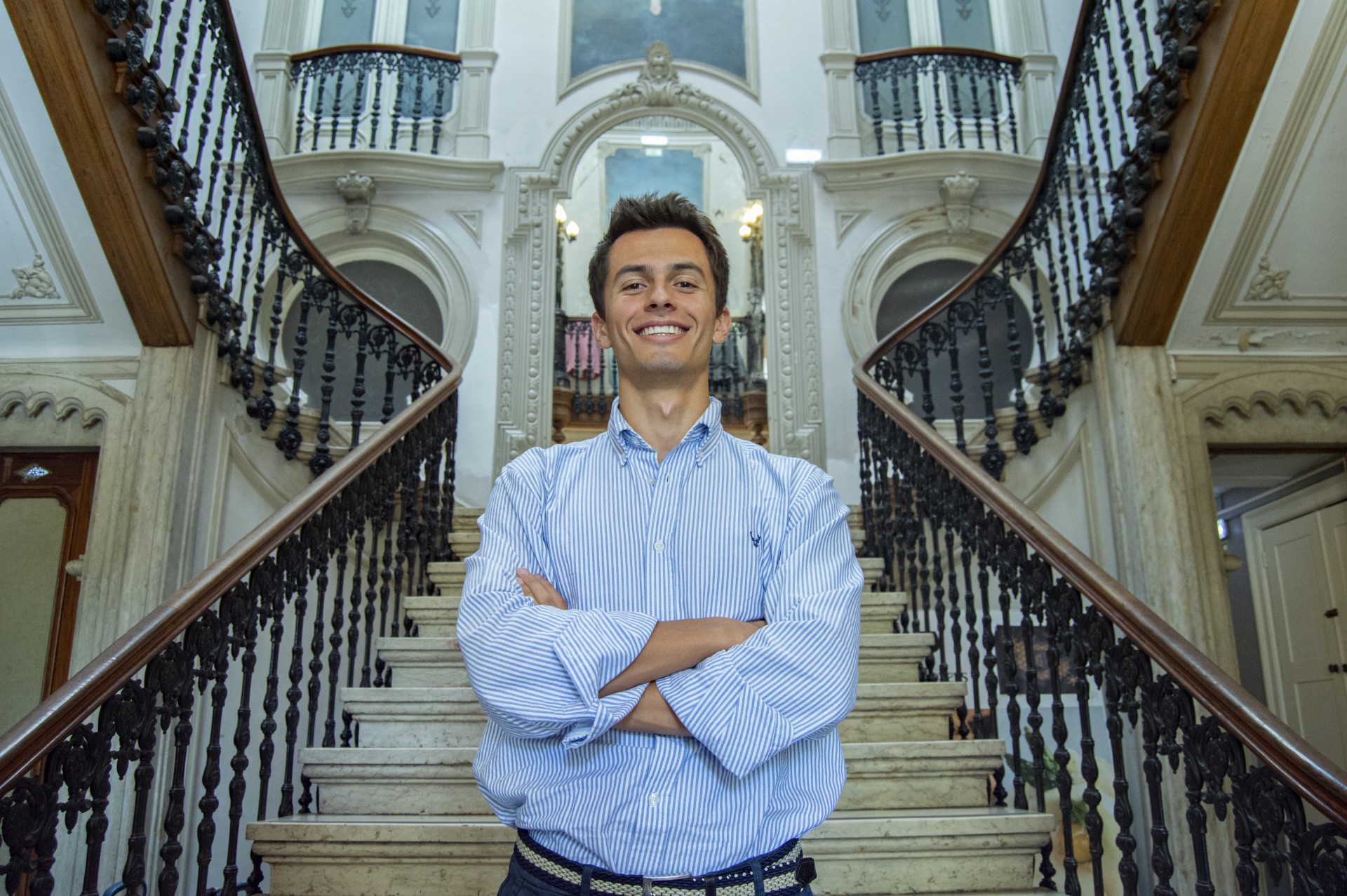 Francisco, tell me about your role this year, because last year you were also involved in the project.
Francisco, tell me about your role this year, because last year you were also involved in the project.
Francisco Alexandrino: João and I are the coordinators of the scientific department, we have 6 other people in our team. Our work is based on 4 areas: the 3 modules to be presented, 4 keynote lectures, the workshop strand and the 3 competitions. We still deal with part of the sponsorships that are more scientific in nature and that is transversal to these 4 areas. What we always look for is innovation, which means that we always have to keep abreast of new scientific developments, which are getting bigger and harder to keep up with. We try to look at cases and themes that have had an impact in the past and that may have future implications for our society. It is based on these ideas that we try to mirror them in the modules. For now, I can say no more than this.
I have a question here, when you say that you are also looking for sponsorships, can Logistics, which is also looking for sponsorships, clash with your scientific credibility hallmark?
Francisco Alexandrino: No. Because in general we are all very aware of what we all do. When deciding to approach a company, especially in terms of medical supplies, the scientific department always has the endorsement and partnership of the logistics department. This also applies to Public Relations and the way we can promote outreach, our entire area of action is always very closely conducted with others. Managing all this requires great responsibility, because we always want to have the best speakers and that can sometimes mean that they are the most expensive and we want them to come so much that we would invest an amount...that we don't have. So we need to manage expectations and resources. We can't bring only guests from the US. (smiles) Then sometimes we get “surprising” requests that force us to re-evaluate costs.
 That is, that kind of idyllic idea that great speakers, who have won many prizes, can come to share their knowledge due to their deep appreciation of students and mission to share knowledge, is not quite so?
That is, that kind of idyllic idea that great speakers, who have won many prizes, can come to share their knowledge due to their deep appreciation of students and mission to share knowledge, is not quite so?
João Costa: Sometimes it is true, yes, because we are sometimes asked to pay a price per lecture. We always explain that this a congress organized just by medical students and that is what makes them come to share their work and inspire future professionals.
Is it your prestige that makes the most reputable speakers come?
João Costa: Prestige yes, which is often shared through the opinions of former speakers. And it definitely helps us to have highly respected professors from this Faculty supporting invitations to those speakers who are usually from the same scientific field.
Maria José Santos: I would like to add that this articulation between many of the Faculty lecturers and AIMS has become increasingly important, as it is a very dear project for them. And they not only help us with a speaker, sometimes they are in contact with a company or a foundation, they make it much easier and offer to help. This help is priceless.
Would you like to stress anything else about your scientific area, João?
João Costa: One of the main goals of our department is to complement medical education, not only for our Faculty students, but also worldwide. This is a big challenge as it takes a lot of work and critical thinking to always ponder about what is missing to improve our syllabus.
Which forces you to always know very well what others have and what may still surprise you.
Guilherme Vilhais: It is precisely because we provide this complement to the syllabus, which is then reflected in the students’ report, who tell us that they have chosen a particular medical specialty they were not so familiar with because they attended a particular AIMS workshop. This has a huge impact and motivates us to continue our work.
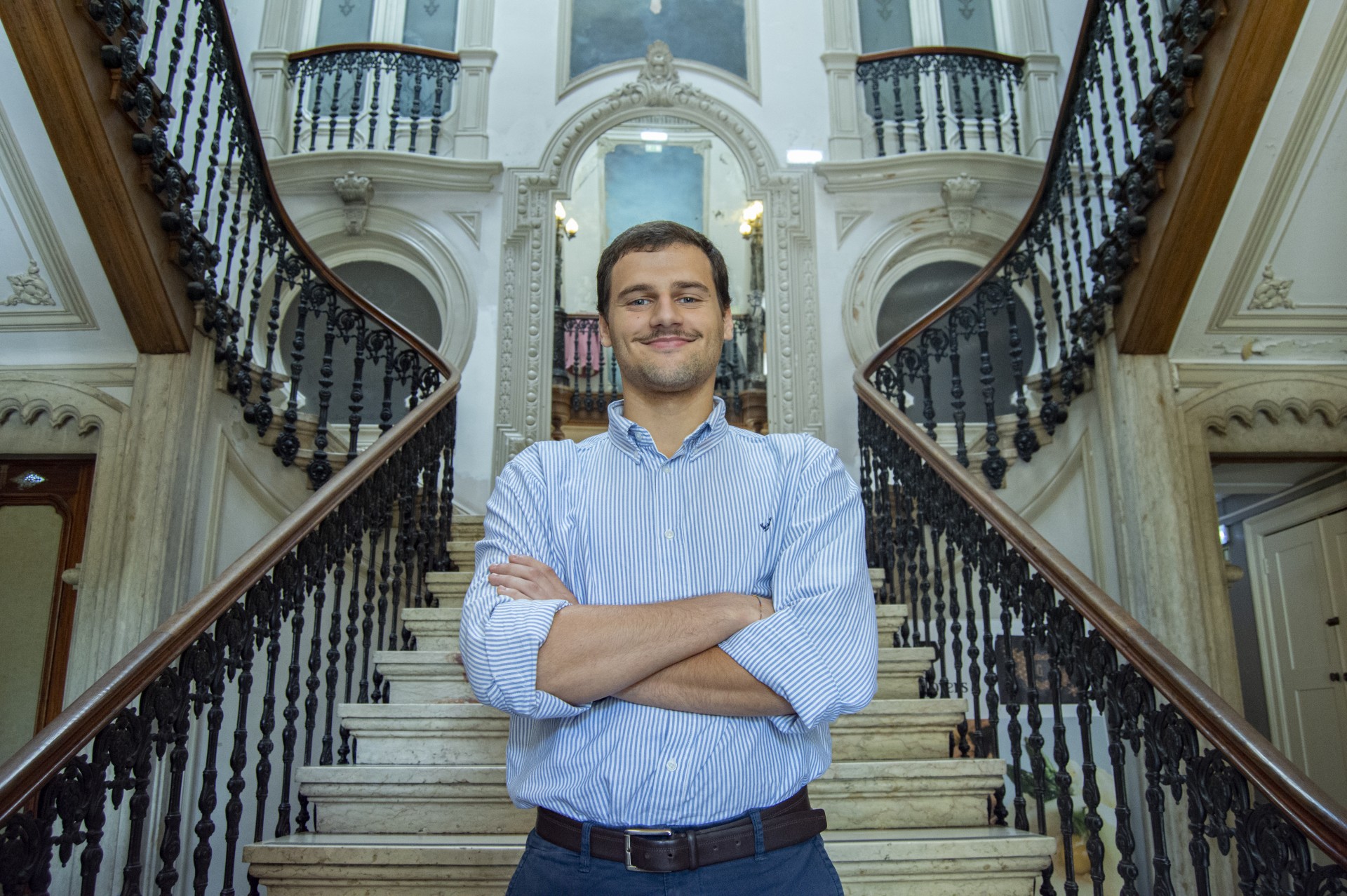
We continue introducing the remaining team that will give the final visibility to all this synergy work. Isn't that so, Afonso?
Afonso Morais: We are the best argument and fighting department (everyone laughs). We are two in the image and communication coordination, plus three people. We make the entire dissemination of the congress through all forms. We manage digital platforms and their content. Our work is a symbiosis, because image uses the work of others, as we disclose everything that other departments have worked on. After the scientific department ensures the presence of a speaker, for example, we evaluate the best way to promote it. We follow a dissemination schedule, which implies difficult management because there are so many chain events, and the timing of the dissemination is central to the impact it has on participants.
Rita Silva: The Image and Communication Department is the face of AIMS. And we have this concern to deliver precisely the message that both we and our colleagues want, with the same amount of affection for the project. The goal is for someone who follows the project externally to feel precisely the same as us who created it from the inside. Other colleagues and participants from other universities tell us that they look at our image and say "that's AIMS for sure ". And while we are subtly innovating, the brand is always there.
Afonso Morais: All of the congress’ image is created here by us, except the photographs taken on the days of the congress itself. We are true self-taught learners regarding Photoshop, spending long hours on YouTube. (the group laughs).
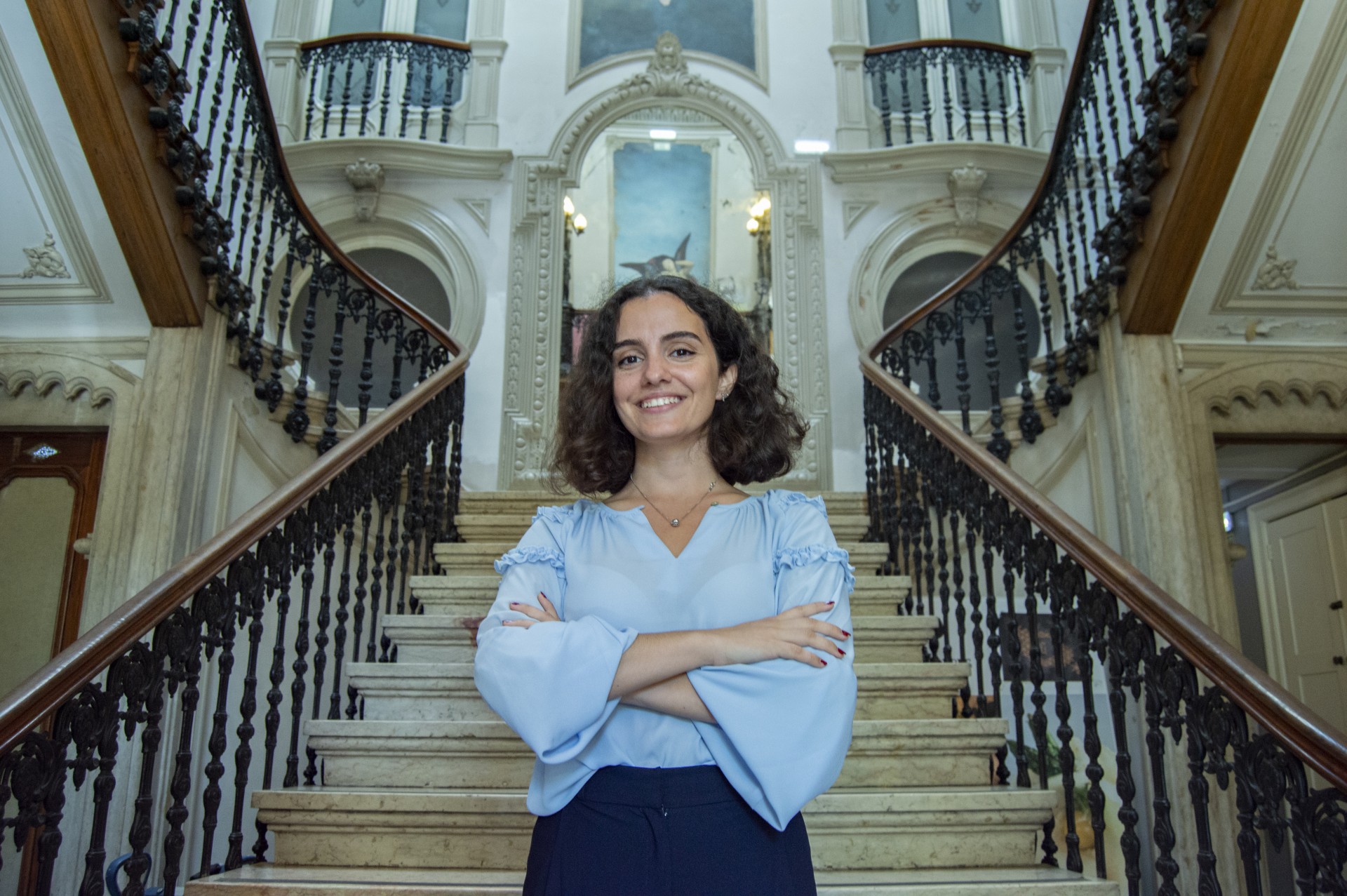 Rita Silva: We joke about being designers in our spare time and "doctors" at other times. This year, Afonso and I created a new image of Masterclasses, also to bring to the 11th edition the idea of innovation and technology; From the chalk board we moved to the tablet, something more technological, because our Masterclasses theme is "Change the World, Change Medicine". And so we thought we had to change ourselves.
Rita Silva: We joke about being designers in our spare time and "doctors" at other times. This year, Afonso and I created a new image of Masterclasses, also to bring to the 11th edition the idea of innovation and technology; From the chalk board we moved to the tablet, something more technological, because our Masterclasses theme is "Change the World, Change Medicine". And so we thought we had to change ourselves.
When you want to change so many points, what is your risk of losing part of your potential public?
Rita Silva: We have discussed this because, since last edition, we realized the need to innovate and always do better. And from the moment we want to be better, we have to be bigger. Our motto is the "no prohibition" of being able to dream. If we want to do something different, we have to find out how we are going to do it and if we can do it. And we usually do. We realize that change can be fearful, but we can stop, plan and not take risks that are not calculated and thought about to the last detail.
Guilherme Vilhais: There are always two ways of looking at things: there is the ambition side, but also the sustainability side. And sometimes they are two visions that clash a little because the question we often ask ourselves is: Why do you want to grow in all aspects at the same time? Is this not a risk? Increase attendance in the same year as the biggest rise in investment regarding speakers and catering expenses. Of course there is a risk, but we have to take it. We are aware of the risks. There are ideas that we find too bold and that we simply dismiss. We considered whether the risk we took would compensate for the end result and the answer was yes. As a rule, each of us stays at AIMS for only two years and each group wants to make a difference and be much more than a continuity team. The short time we are at AIMS gives us the ambition to want to imprint our mark. And when the previous congress raised the stakes, it forces us to raise ours a lot. But, in fact, it must be said that what we inherited from the last congress is now an open door for us; just as the result of our work in this edition will be the starting point we will leave for the next ones to come. While, on the one hand, the most successful edition to date was the previous one, on the other, it increases our responsibility and our commitment. What's more, I want the 12th edition to have even better working conditions than we had.
Katerina Drakos: And I would like to add one more thing. While there is this dose of risk of change, we don't lose the public because AIMS's identity and what's left of it is always present. There are parameters that never change because they are the references, for example, we keep the three modules with different themes.
Are there bases that are important to maintain because they are the pillars of success?
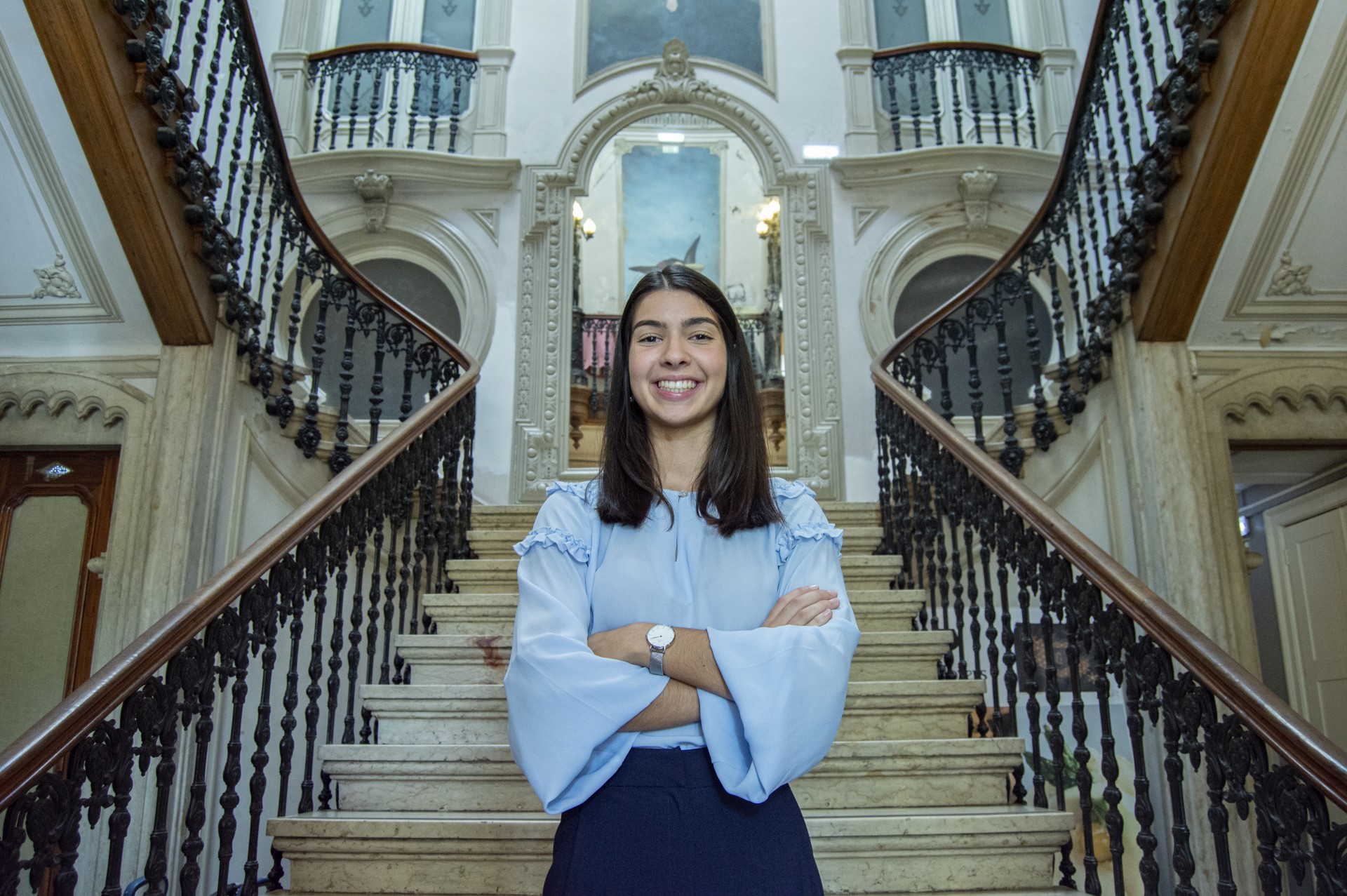 Katerina Drakos: No doubt. The scientific department is very careful to maintain what is the core of AIMS.
Katerina Drakos: No doubt. The scientific department is very careful to maintain what is the core of AIMS.
Afonso Morais: Let me go a little further, because I don't think we even take real risks. Innovations are not a risk to the public opinion, because we have already calculated and evaluated them very well. What we do is touch on details that would be more stagnant. We have the ability to predict what will be well received. Without arrogance, we are at a level where we no longer take so many risks to change.
Katerina, I still need to introduce the department you coordinate.
Katerina Drakos: We are only two, me and Adriana Oliveira. Although AIMS is an AEFML cross-sectional project built for our faculty students, our department is very much concerned with making the congress more international and being represented externally, hence the Public Relations department. We deal with partnerships with other congresses, always contact all congresses nationally and internationally; We create spaces between congresses so that there is some interaction between the parts. Then we have the ambassadors, who are contacts we make worldwide and who we ask to be AIMS promoters internationally. Alongside all this, we have the relationship with the media and the registrations. This year, we are very focused on achieving stronger visibility, media coverage and prominence outside Portugal.
But you don't need an audience because you have waiting lists of hundreds of people. Is that the prestige hallmark we talked about?
Guilherme Vilhais: And because it allows to grow. The acceptance rate of the invitations we address to the speakers clearly shows the difference compared to what happened two or three years ago. We want to further increase this rate and project it for the next 2 or 3 years as well. We want people who say "no" today to look at AIMS from a different perspective in a couple of years and then say “yes”. We have speakers who do not need to come to talk to such a congress, so it turns out to be very decisive that they recognize the merit of the event and feel that they really want to talk in this particular event. We want it to be this event and place. In addition, media coverage will also open the door to new sponsorships that will allow the congress to continue to grow in the future.
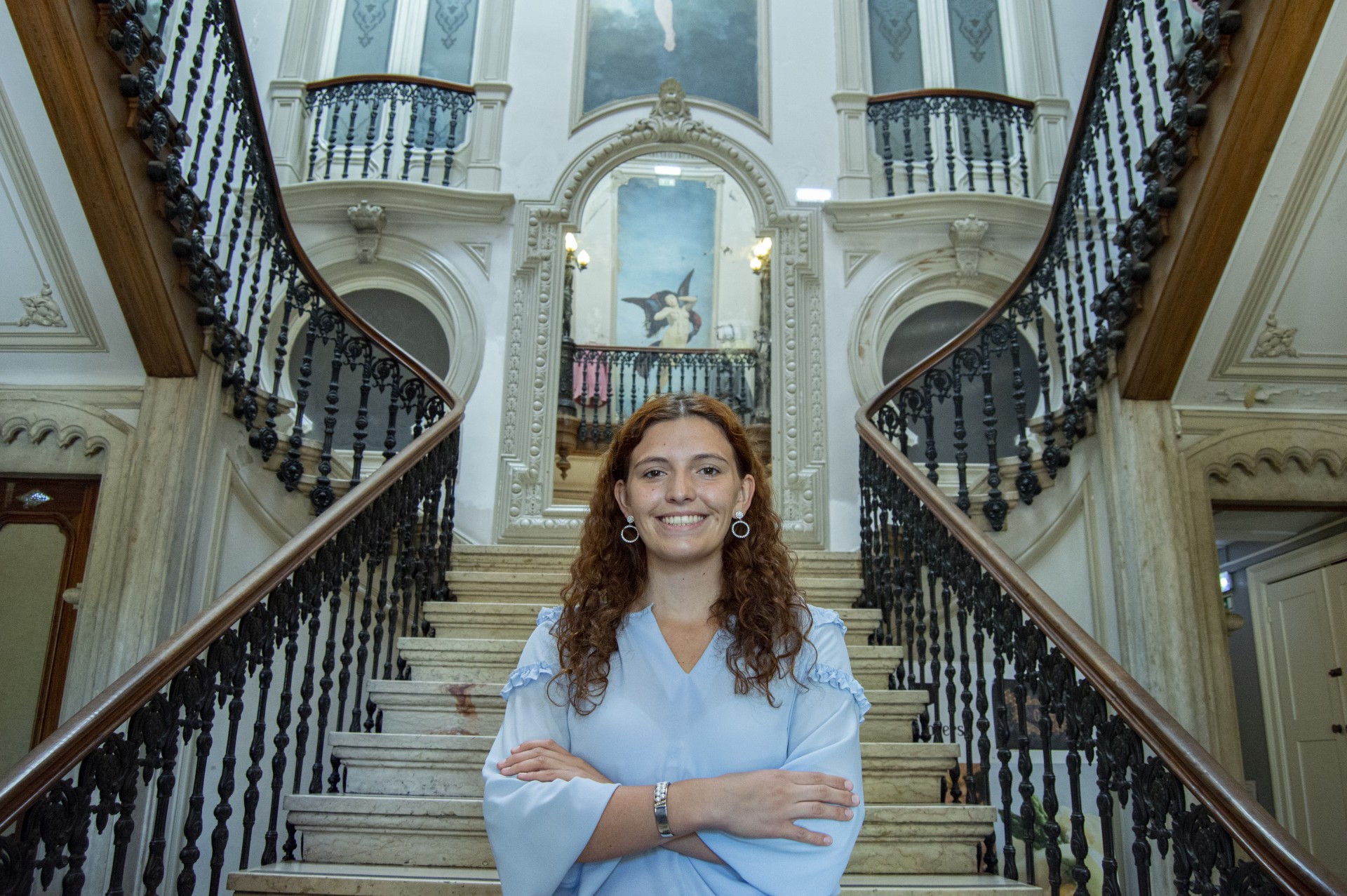 What other ambitions do you have?
What other ambitions do you have?
Adriana Oliveira: As a member of the Public Relations team, we really want to focus on the utmost internationalization of the congress.
Francisco Alexandrino: And to reach science renowned countries, to expand further to England, Germany and eventually the US.
This 11th edition team took over in May last year, and the hard work will be reflected on two occasions, the AIMS Masterclasses on 30 October 2019 and the AIMS Meeting on 26-29 March 2020.
United with a spirit of what is collective and committed to making everyone around them proud of them, they don't even want to think about coming to an end. In front of me there were 9 coordinators and one more person, but in total 24 people are engaged, who are organized in phases and between departments. They can hardly align their agendas so that they can all meet in person. Unless they get a WhatsApp message or a phone call just saying, "It's urgent," and that's for sure, everyone will always come in with efficiency and commitment as if they were a secret intervention team. And if we think about it… they are! That is why they deserve to make themselves known.
Good luck AIMS, the world is yours!
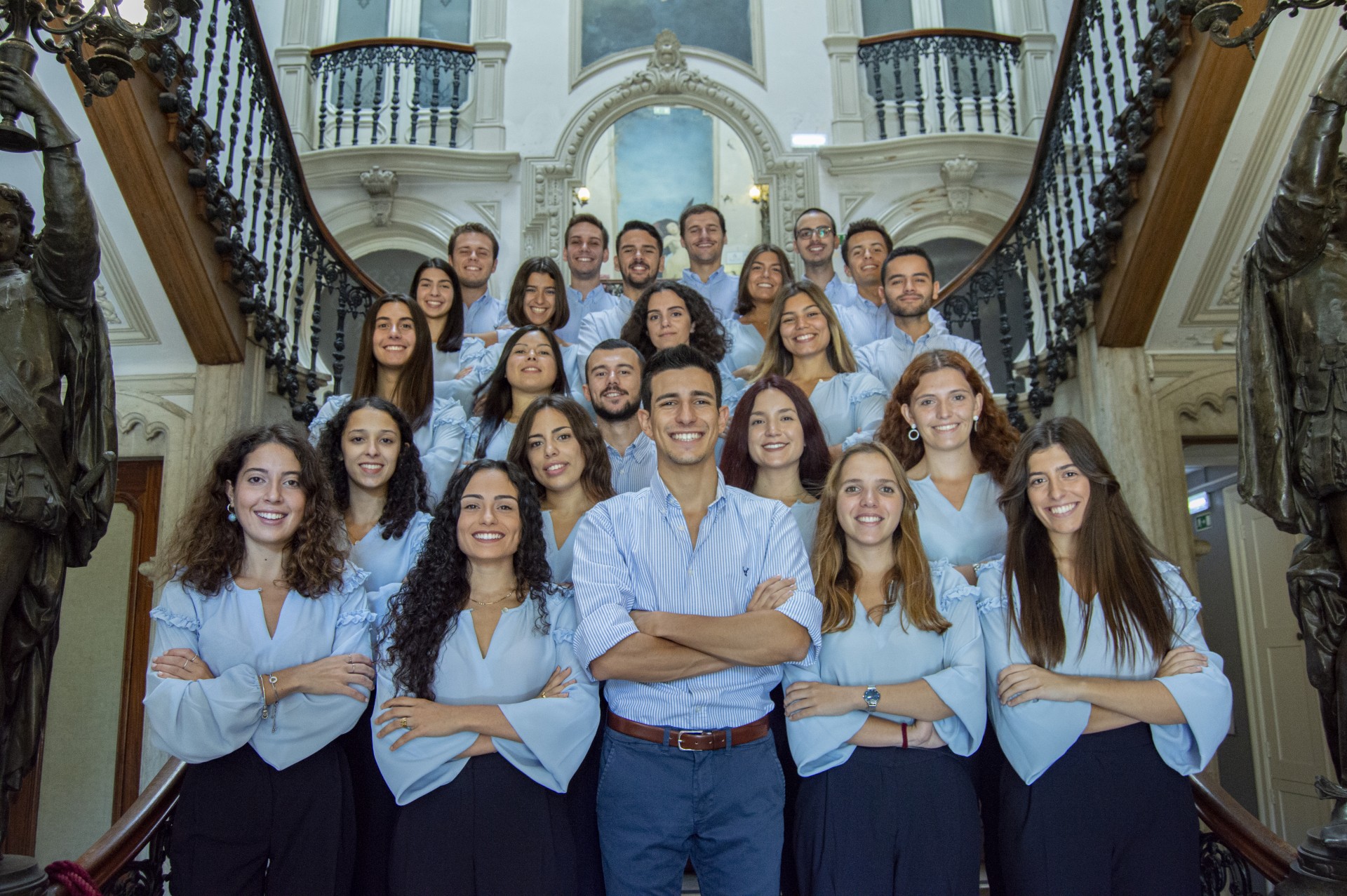
Joana Sousa
Editorial Team

